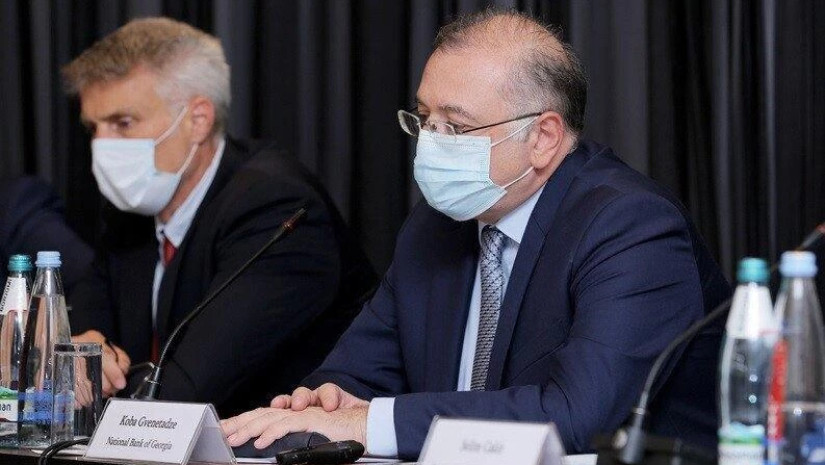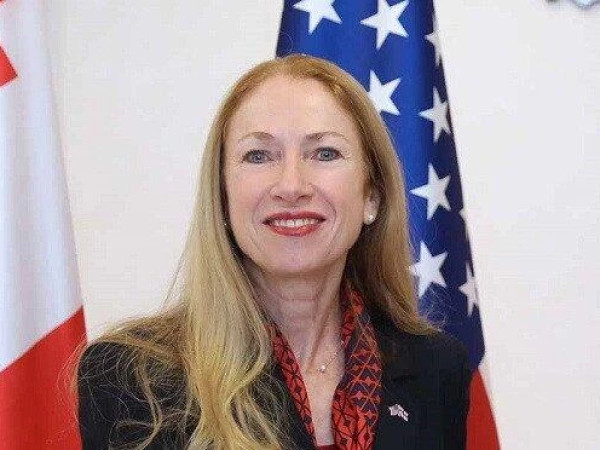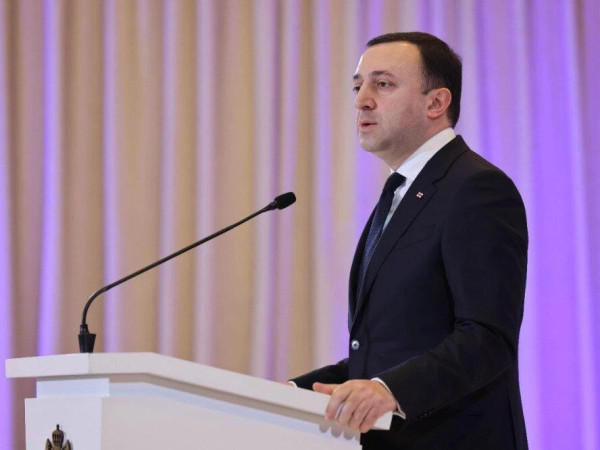The National Bank of Georgia and the World Bank invited economists, financiers and industry experts from both governmental and non-governmental and academic circles on June 23, 2021 to discuss and share the views on the recent global economic developments and prospects and potential implication for Georgia.
During the discussion, Ayhan Kose, Director of the World Bank's Prospects Group presented the June 2021 edition of the Global Economic Prospects (GEP) report, a flagship report of the World Bank that examines global economic developments and prospects.
The report notes that a recovery is underway with the global economy expected to expand 5.6% in 2021, the fastest post-recession pace in 80 years. Still, the recovery is uneven and losses in output, income per capita and living conditions from COVID-19 are unlikely to be recovered by 2022. Strengthening the recovery will require effective control over the pandemic; continued support while safeguarding price stability and fiscal sustainability and implementing reforms to ensure green, resilient and inclusive recovery.
The recovery in global economic activity has been accompanied by a rebound in global inflation and the 2021 June GEP explores whether the globally emerging inflationary pressures are a cause for alarm. Given the recent inflation path in Georgia, this discussion is very relevant. The report states:
"After declining in the first half of 2020, global inflation has rebounded quickly on recovering activity. While global inflation is likely to continue rising in the remainder of this year, inflation is expected to remain within target bands in most inflation-targeting countries".
"As of May 2021, agricultural commodity prices were 37 percent higher than a year ago, the fastest price increase since 2011."
"Among EMDEs (emerging market and developing economies) where recent price pressures may raise inflation above their target ranges, they may not warrant a monetary policy response-provided they are temporary and inflation expectations remain well-anchored."
"Such robust anchoring of inflation expectations in part reflected the introduction of more resilient macroeconomic policy frameworks such as inflation targeting, fiscal rules, and greater exchange rate flexibility in EMDEs."
"It is encouraging to see the recovery picking up pace globally, as well as in Georgia. However, the recovery remains fragile. To sustain, the pandemic should be put firmly under control and this will require faster progress in vaccination. In addition, the support measures put in place to mitigate the impact of COVID-19 would need to be gradually unwound. Beyond the short-term, reinvigorating the structural reform agenda (for example, State-owned enterprise reform, competition, judiciary etc.), improving human capital, promoting digitalization and integrating the climate-risks agenda can ensure productivity gains that continue to deliver robust growth. Global inflationary pressures associated with the recovery will continue to impact Georgia's inflation; as these are global trends, the room for the authorities to respond is limited. Still, progress in de-dollarization can help lower exchange rate volatility while improved social safety nets can help mitigate the impact over the vulnerable", - Sebastian Molineus, World Bank's Regional Director for the South Caucasus said.
"No matter how undesirable high inflation may be this year, it is caused by the pandemic and this is a critical issue in developed countries as well. Georgia, as a country with a small open economy, has to deal with many challenges simultaneously, which ultimately affect prices. Just because inflation is much higher than inflation target does not mean that inflation targeting "does not work." It should be understood that inflation target is a nominal anchor in monetary policy decisions. Moreover, low target inflation is even more important today, as it is the factor that pushes the National Bank to tighten monetary policy in the period of high inflation, which it does. This, in turn, will inevitably help the inflation, which is now high because of one-off factors, go down again over time", said Koba Gvenetadze, Governor of the National Bank of Georgia.
The Governor of the National Bank and representatives of the World Bank were happy to answer the questions of the audience after the presentations.
The report is available at: World Bank: Global Economic Prospects, June 2021















